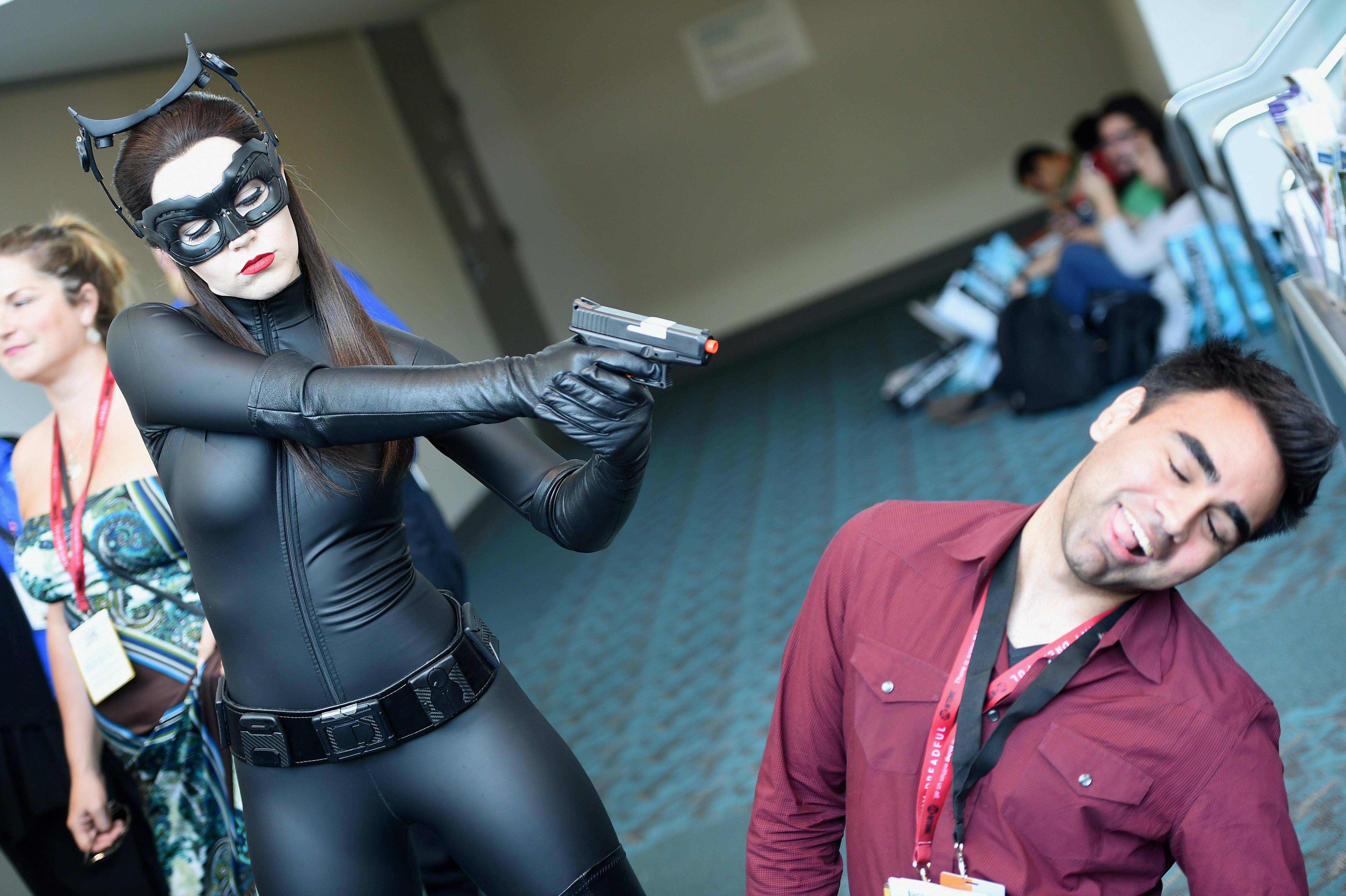With #GamerGate churning out one sexist outrage after another, it’s easy to lose hope that women will ever be fully accepted in geeky entertainment circles. But not all circles are alike. The comics industry, for instance, is beginning to demonstrate that just because a pastime is male-dominated doesn’t mean it has to stay that way, and that efforts to be more inclusive to women can work.
This past weekend’s New York Comic Con demonstrated this real shift, with major panels exploring “an explosion of enthusiasm and visibility for women in comics,” as the description for Vulture’s panel on female fandom reads. The women on that panel—Captain Marvel writer Kelly Sue DeConnick, Red Sonja writer Gail Simone, and Sana Amanat, editor of Captain Marvel and Ms. Marvel—talked in depth about diversity, equality, and creating comic book characters that women and people of color could relate to in the way that white men have come to expect for themselves.
Alex Abad-Santos of Vox profiled DeConnick, who has gained a lot of positive attention for taking a character, Carol Danvers, who had previously been ill-served, and making her complex and well-rounded, as well as promoting her from Ms. to Captain Marvel. “DeConnick showed a damaged human being that had issues with her confidence, fear about making the right calls, the courage to make sacrifices, the fortitude to lead the Avengers, and the determination to honor the original Captain Marvel,” writes Abad-Santos. “In short: She became a person with faults and merits—a given when it comes to the comic industry’s male characters, but a rarity for female characters.” Danvers even gained some fabric in her uniform, moving from a skimpy leotard to a form-fitting but more substantial captain’s get-up that’s much closer to the kind of thing male heroes wear.
Before she got to be Captain Marvel, Danvers used to be Ms. Marvel, a role now taken over by a character called Kamala Khan, a Pakistani-American teenager. The new incarnation of Ms. Marvel has been a surprise hit, according to Abad-Santos. “Written by the talented G. Willow Wilson, and edited by Sana Amanat, Ms. Marvel recently went into its sixth printing,” which he says is “virtually unheard of for a comic, let alone a female-led comic.”
Of course, change is slow. Walt Hickey at FiveThirtyEight compiled evidence showing that female characters are still marginalized in the world of comics. “Among the characters for which we have gender data,” Hickey writes, “females made up only 29.3 percent of the DC character list and 24.7 percent of the Marvel roster.” (He uses “females” instead of “women” because of the age and species range of the characters.)
The percentage of female characters, as low as it is, is rising. Three decades ago, the percent of female characters was below 20 percent for both DC and Marvel and it’s been slowly and steadily climbing since. But more could be done, as Hickey points out. The number of new female characters added each year still sits under 40 percent of total new characters for both comics publishers, and simply nudging that number up to 50 percent would make female characters gain much faster.
There’s another positive change in the industry. According to Ms. Marvel writer Wilson, there’s been “a major leap forward as people within the industry and fans themselves became more vocal about the harassment of women at comic book conventions,” writes Hickey. “The fact that people now feel comfortable enough to report these events—or even to talk about them at all—is a win, Wilson said.”
And it’s not just talk. At New York Comic Con, there were signs in the hallway this year that discouraged sexual harassment with slogans like, “Cosplay is not consent,” and reminded people to “keep your hands to yourself” and to ask permission before photographing someone. Anti-harassment rules can often be difficult to enforce, but the fact that conventions are openly signaling their desire to be female-friendly is a good start.
The comic book world has long been dominated by men and it won’t change overnight. But people are listening and showing a willingness to make the world more welcoming to women, all without the sky falling. The video game world should take note.
